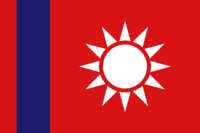Capital punishment in Monsilva
Capital punishment in Monsilva was abolished formally after the establishment of the republic in December 1978 for all offences. In the original 1983 constitution, capital punishment was expressed as completely illegal in all cases, including during wartime. Before 1978, during the Kingdom of Monsilva, capital punishment was legal for serious offences such as murder, rape and treason. The last person to be executed in Monsilva was Fu Jiayi, hanged for treason on 6 July 1978. Around 4 times as many executions were carried out during the leadership of Shao Yaoting from 1963 until his forced resigntation in December 1978 than during the period from the Kingdom of Monsilva's establishment in 1830 until 1963.
Contents
History
Early history
Little is known about laws regarding capital punishment during dynastical Monsilva, however instances of important figures being executed by the imperial governments have been found. The general consensus amongst historians is that capital punishment was not particularly encouraged during Monsilva's dynasties but it was never outlawed. The first record of an execution being carried out by the state, was a letter written about a man who had attempted to assassinate an important political figure during the late Xia dynasty in the 6th century CE. It is unknown what the true purpose of the letter was, however most believe it was a declaration of the man's sentence to death by quartering.
During the Zhou dynasty, capital punishment was legally practiced, especially during its earlier years. The main offences that could result in a sentencing to death were murder and treason, which are what all records of capital punishment in the dynasty have been associated with. However, in the later years of the dynasty, corporal punishment and torture were preferred methods for sentencing. Punishments included amputation, castration and caning. The main form of capital punishment in the Zhou dynasty was hanging.
Imperial history
The Empire of Baltanla had existing capital punishment laws which came into effect with the annexation of the Zhou dynasty into the empire in 1500. During the 230 years that Monsilva was a province of the empire, around 500 Monsilvans were executed by the Baltanese Imperial government. Most of these executions were carried out on criminals who had been convicted of treason, most of which were for attempted assassination or spying.
During the Kingdom of Great Shan, capital punishment remained legal and all laws from the previous Empire of Baltanla were retained. Before 1820, very few instances of capital punishment were carried out in the nation. There were no convictions of treason during this period, all convictions were either murder or rape and one instance of bestiality.
Civil War and pre-Martial law
During the Monsilvan Civil War, the number of executions rose dramatically, with more executions taking place between 1820 and 1830 than the rest of the Kingdom of Great Shan's history. Many prisoners were soldiers of opposing belligerents of the war. Although both sides carried out executions in their respective civil war prison camps, the Government of the Great Shan sentenced the most people to the death penalty, with around 1200 people being executed between 1825 and 1830.
After the Monsilvan Civil War, during the years of the Kingdom of Monsilva before martial rule was instated in 1963, capital punishment was rarely used for crimes. Most convictions of murder or rape, which would formerly result in execution, now resulted in life imprisonment. Excluding the military executions of political leaders after the Monsilvan Civil War, only around 300 executions took place during the period from the establishment of the Kingdom of Monsilva until Shao Yaoting's accession to prime minister in 1963.
Martial rule period
In 1963, prime minister Shao Yaoting implemented martial law. Along with other restrictive policies, martial law included mandatory capital punishment for murder, rape and multiple other crimes. This lead to a massive spike in executions. Excluding disputed executions carried out by the government against political opposition, around 1300 executions were legally carried out between 1963 and 1978.
Outside of legal executions, the government also carried out many illegal assassinations of political and social leaders, such as: leader of the National Party, Dong Ho; co-founder of the Monsilvan Revolutionary Army, Xiang Ai; and democratic activist Zou Liqiu. When the Monsilvan Republic was established in 1978, capital punishment was formally made illegal in all cases. Although many revolutionaries were in support of executing many former government officials, no surviving officials were executed, but were imprisoned instead. However, Shao Yaoting was planned to be executed originally, but was instead imprisoned until he died of natural causes in 1984.
Debate and possible re-introduction
The issue of capital punishment has arisen multiple times since its abolition in 1978. The first example of capital punishment being discussed on a political level, was when the Monsilvan parliament discussed re-introducing capital punishment for serious crimes such as homicide and rape in 1986. Although the issue was discussed, no changes were put to vote. The closest Monsilva has gotten to re-introducing the death penalty was in February 2004 after the kidnapping and murder of a 15-year-old boy, which lead to capital punishment being discussed in parliament. The convicted kidnappers' trials were put on hold until the legislation had been voted on. The vote for the re-introduction of capital punishment resulted in 115 no votes, 70 yes votes and 36 abstentions. The kidnappers were sentenced to life imprisonment without parole.
In 2024, another possibility for capital punishment to be re-introduced to Monsilva arose, when the state of Shaoyu was being admitted. As Shaoyu had previously been administered by Jackson and later Zloveshchiy, capital punishment had remained on the island since Monsilva gave it up in 1828. However, the Shaoyu state government, despite having the ability not to have it removed, chose to follow the federal abolition of capital punishment and abolish it on the island as well (with exclusions for those convicted by the OU during the OU military intervention in Akvatika).
